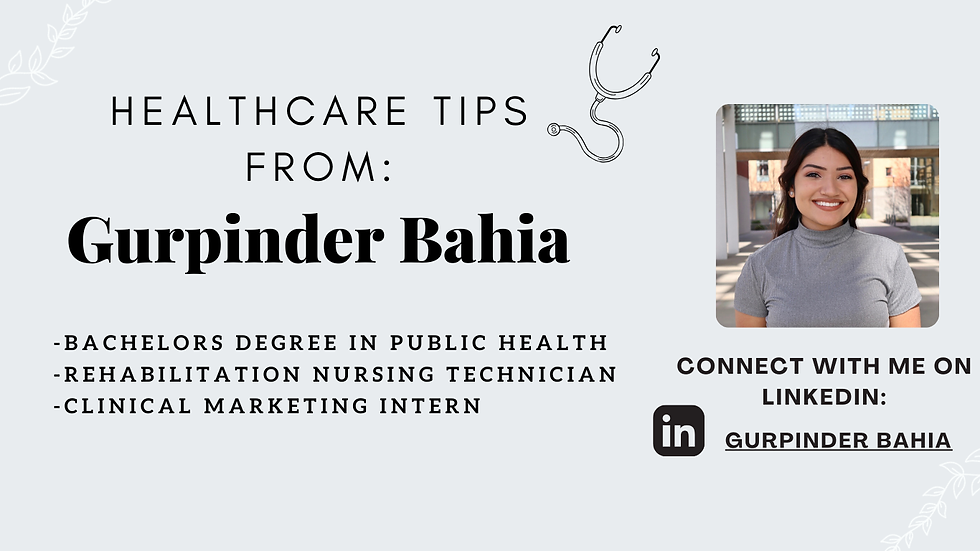Healthy Gut, Happy You: The Best Probiotic Foods To Eat
- Dr. Dooreck with Gurpinder Bahia

- Feb 18, 2025
- 4 min read
Updated: May 31, 2025

You probably know that the foods you eat can affect your body differently. But did you know how many different ways you can be affected?
"I hope to add real value to social media and share what my patients ask me about." — Dr. Dooreck
Gut Health ➕ Patient Advocacy with Navigation ➕ Life BalanceIf you were looking for information about Private Healthcare Navigation and Patient Advocacy from Executive Health NavigationClick here for Executive Health Navigation
Having served as doctors for over a decade, we help Family Offices, Private Individuals, Registered Investment Advisors, High-Net-Worth Advisors, and C-Suites navigate the healthcare system for their select clients/families, providing privacy and discretion.
Private Healthcare Navigation and Patient Advocacy when YOU need it mostDid you know that your diet can influence your...
Immune system?
Mental health?
Acne?
Mood and emotions?
How does gut health affect overall health so much? Recently, new research has been developing concerning our microbiome, the trillions of bacteria in our gut. Our microbiome is linked to almost everything, so we must keep it in balance.
Our diet plays a massive role in our microbiome, meaning that you are in control of building a better microbiome! Probiotics, the "good" bacteria in our systems, play a key role in maintaining this balance and are essential for keeping your body and mind thriving (Harvard Health).
Here are some probiotic-rich foods that you should implement into your diet:
Foods | Benefits |
Cottage Cheese | It is stacked with active cultures and is also high in calcium. It pairs well with berries for a sweet breakfast or scallions and peppers for a savory snack. |
Kimchi | A Korean fermented cabbage dish that provides a kick of flavor. Along with being full of probiotics, it can reduce inflammation and improve your immune system. |
Sauerkraut | The cabbage in sauerkraut is fermented with lactic-acid bacteria, which helps keep your gut balanced. On top of that, it is high in fiber, aiding digestion. |
Yogurt | Yogurts naturally contain probiotic cultures that benefit your digestive tract. Strains of Greek yogurt also add specific probiotics to boost your gut. Add in fruits and granola to make a quick and healthy snack. |
Miso | Miso is a fermented soybean paste found in many traditional Japanese dishes. It is rich in probiotics and contains protein, calcium, iron, and magnesium. However, it is high in sodium, so use it sparingly. |
Pickles | Cucumber pickles brined in saltwater and fermented are full of good bacteria. Additionally, pickle spears contain vitamins A, K, and potassium, improving blood, cell, and heart health. Consider adding a few chopped pickles to your next salad or wrap. |
Kombucha | Kombucha is a fermented tea made with sugar, tea, bacteria, and yeast. It contains probiotics and antioxidants that boost the immune system. |
Apple Cider Vinegar | As its name suggests, this vinegar is made from fermented apple sugars. Its acetic acid can aid digestion and weight loss. This vinegar makes a delicious salad dressing, but its abrasive taste may take some time to overcome. |
Not all fermented foods contain probiotics
Some foods undergo steps that remove the probiotics, such as beer or wine, or make them inactive, like baking and canning. However, most fermented foods are also probiotic foods. A potential downside to fermented foods is that their taste and smell can be pretty substantial, which may be unpleasant for some people. The unique flavors and textures of fermented foods are partly due to the different species of bacteria used.

Here are some takeaways on this from a public health point of view:
Reduce the amount of processed, high-sugar, and fat foods you eat, as they can negatively alter your microbiome.
Prebiotics work to feed the probiotics and healthy bacteria in the gut. Be sure to incorporate prebiotics such as apples, bananas, onions, and garlic.
Antibiotics can kill healthy bacteria in the gut. Incorporating probiotics before and after treatment can help restore gut health.

How Many Probiotic Foods Do You Need?
There is no recommended daily probiotic intake, so it is impossible to know precisely which fermented foods or what quantity is best. Therefore, the general guideline is to add as many fermented foods as possible to your daily diet.
While maintaining a healthy diet is important, balance and moderation are ultimately the keys to staying healthy. Talk to your doctor or nutritionist before implementing drastic dietary changes.
Personally
I eat a high-fiber, mostly plant-based 🌱 diet, no red meat, drink 4 liters of water a day, exercise, and am focused on keeping nutrition simple. I am sharing what works for me and what I routinely recommend to my patients.
"Balance. Portion control. Keep nutrition simple. Eat Smart. Eat Healthy. 🌱 🌾 🌿"
Gut Health ➕ Patient Advocacy with Navigation ➕ Life Balance
If you were looking for information about Private Healthcare Navigation and Patient Advocacy from Executive Health NavigationClick here for Executive Health Navigation✴ Connect with Dr. Dooreck on LinkedIn, where he shares information on Health, Diet, Nutrition, Exercise, Lifestyle, and Balance.
gastroenterology | colonoscopy doctor | colonoscopy and gastroenterology services | gastro doctor | gi doctor | gastrointestinal diagnostic centers | public health



